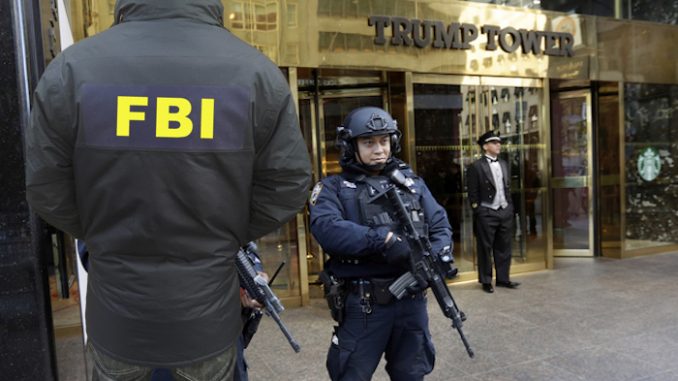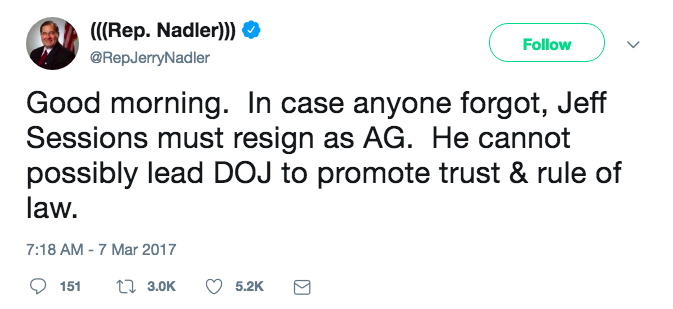Former Vice President
Joe Biden, now a 2020 Democratic presidential contender, has locked into a specific story about the controversy in Ukraine.
He
insists that, in spring 2016, he strong-armed Ukraine to fire its chief
prosecutor solely because Biden believed that official was corrupt and
inept, not because the Ukrainian was investigating a natural gas
company, Burisma Holdings, that hired Biden's son, Hunter, into a
lucrative job.
There’s just one problem.
Hundreds
of pages of never-released memos and documents — many from inside
the American team helping Burisma to stave off its legal troubles —
conflict with Biden’s narrative.
And they raise the troubling
prospect that U.S. officials may have painted a false picture in Ukraine
that helped ease Burisma’s legal troubles and stop prosecutors’ plans
to interview Hunter Biden during the 2016 U.S. presidential election.
For
instance, Burisma’s American legal representatives met with Ukrainian
officials just days after Biden forced the firing of the country’s chief
prosecutor and offered “an apology for dissemination of false
information by U.S. representatives and public figures” about the
Ukrainian prosecutors, according to the
Ukrainian government’s official memo of the meeting. The effort to secure that meeting began the same day the prosecutor's firing was announced.
In
addition, Burisma’s American team offered to introduce Ukrainian
prosecutors to Obama administration officials to make amends, according
to
that memo and the American legal team’s internal emails.
The memos raise troubling questions:
1.) If
the Ukraine prosecutor’s firing involved only his alleged corruption
and ineptitude, why did Burisma's American legal team refer to those
allegations as “false information?"
2.) If
the firing had nothing to do with the Burisma case, as Biden has
adamantly claimed, why would Burisma’s American lawyers contact the
replacement prosecutor within hours of the termination and urgently seek
a meeting in Ukraine to discuss the case?
Ukrainian prosecutors
say they have tried to get this information to the U.S. Department of
Justice (DOJ) since the summer of 2018, fearing it might be evidence of
possible violations of U.S. ethics laws. First, they hired a former
federal prosecutor to bring the information to the U.S. attorney in New
York, who, they say, showed no interest. Then, the Ukrainians reached
out to President Trump’s personal lawyer,
Rudy Giuliani.
Ukraine’s new president, Volodymyr Zelensky,
told Trump in July that he plans to launch his own wide-ranging investigation into what happened with the Bidens and Burisma.
“I’m
knowledgeable about the situation,” Zelensky told Trump, asking
the American president to forward any evidence he might know about. "The
issue of the investigation of the case is actually the issue of making
sure to restore the honesty so we will take care of that and will work
on the investigation of the case.”
Biden has faced scrutiny since December 2015, when the
New York Times published a story noting that Burisma hired
Hunter Biden just weeks after the vice president was asked by President
Obama to oversee U.S.-Ukraine relations. That story also alerted
Biden’s office that Prosecutor General Viktor Shokin had an active
investigation of Burisma and its founder.
Documents I obtained
this year detail an effort to change the narrative after the Times story
about Hunter Biden, with the help of the Obama State Department.
Hunter
Biden’s American business partner in Burisma, Devon Archer, texted a
colleague two days after the Times story about a strategy to counter the
“new wave of scrutiny” and stated that he and Hunter Biden had just met
at the State Department. The text suggested there was about to be a new
“USAID project the embassy is announcing with us” and that it was
“perfect for us to move forward now with momentum.”
I have sued
the State Department for any records related to that meeting. The reason
is simple: There is both a public interest and an ethics question to
knowing if Hunter Biden and his team sought State’s assistance while his
father was vice president.
The controversy ignited anew earlier this year
when I disclosed
that Joe Biden admitted during a 2018 videotaped speech that, as vice
president in March 2016, he threatened to cancel $1 billion in U.S. loan
guarantees, to pressure Ukraine’s then-President Petro Poroshenko to
fire Shokin.
At the time, Shokin’s office was
investigating Burisma. Shokin told me he was making plans to question
Hunter Biden about $3 million in fees that Biden and his partner,
Archer, collected from Burisma through their American firm. Documents
seized by the FBI in an unrelated case confirm the payments, which in
many months totaled more than $166,000.
Some media outlets have
reported that, at the time Joe Biden forced the firing in March 2016,
there were no open investigations. Those reports are wrong. A
British-based investigation of Burisma's owner was closed down in early
2015 on a technicality when a deadline for documents was not met. But
the Ukraine Prosecutor General's office still had two open inquiries in
March 2016, according to the official case file provided me. One of
those cases involved taxes; the other, allegations of corruption.
Burisma
announced the cases against it were not closed and settled until January 2017.
After I first
reported it in a column, the New York Times and
ABC News published similar stories confirming my reporting.
Joe
Biden has since responded that he forced Shokin’s firing over concerns
about corruption and ineptitude, which he claims were widely shared by
Western allies, and that it had nothing to do with the Burisma
investigation.
Some of the new documents I obtained call that claim into question.
In a
newly sworn affidavit
prepared for a European court, Shokin testified that when he was fired
in March 2016, he was told the reason was that Biden was unhappy about
the Burisma investigation. “The truth is that I was forced out because I
was leading a wide-ranging corruption probe into Burisma Holdings, a
natural gas firm active in Ukraine and Joe Biden’s son, Hunter Biden,
was a member of the Board of Directors,” Shokin testified.
“On
several occasions President Poroshenko asked me to have a look at the
case against Burisma and consider the possibility of winding down the
investigative actions in respect of this company but I refused to close
this investigation,” Shokin added.
Shokin certainly would have
reason to hold a grudge over his firing. But his account is supported by
documents from Burisma’s legal team in America, which appeared to be
moving into Ukraine with intensity as Biden’s effort to fire Shokin
picked up steam.
Burisma’s own accounting records show that it
paid tens of thousands of dollars while Hunter Biden served on the board
of an American lobbying and public relations firm, Blue Star
Strategies, run by
Sally Painter and
Karen Tramontano, who both served in President
Bill Clinton’s administration.
Just
days before Biden forced Shokin’s firing, Painter met with the No. 2
official at the Ukrainian embassy in Washington and asked to meet
officials in Kiev around the same time that Joe Biden visited
there. Ukrainian embassy employee Oksana Shulyar emailed Painter
afterward: “With regards to the meetings in Kiev, I suggest that you
wait until the next week when there is an expected vote of the
government’s reshuffle.”
Ukraine’s Washington embassy confirmed
the conversations between Shulyar and Painter but said the reference to a
shakeup in Ukrainian government was not specifically referring to
Shokin’s firing or anything to do with Burisma.
Painter
then asked one of the Ukraine embassy’s workers to open the door for
meetings with Ukraine’s prosecutors about the Burisma investigation, the
memos show. Eventually, Blue Star would pay that Ukrainian official
money for his help with the prosecutor's office.
At the time, Blue
Star worked in concert with an American criminal defense lawyer, John
Buretta, who was hired by Burisma to help address the case in Ukraine.
The case was settled in January 2017 for a few million dollars in fines
for alleged tax issues.
Buretta, Painter, Tramontano, Hunter Biden
and Joe Biden’s campaign have not responded to numerous calls and
emails seeking comment.
On March 29, 2016, the day Shokin’s firing
was announced, Buretta asked to speak with Yuriy Sevruk, the prosecutor
named to temporarily replace Shokin, but was turned down, the memos
show.
Blue
Star, using the Ukrainian embassy worker it had hired, eventually
scored a meeting with Sevruk on April 6, 2016, a week after Shokin’s
firing. Buretta, Tramontano and Painter attended that meeting in Kiev,
according to Blue Star’s memos.
Sevruk memorialized the meeting in
a government memo that the general prosecutor’s office provided to me,
stating that the three Americans offered an apology for the “false”
narrative that had been provided by U.S. officials about Shokin being
corrupt and inept.
“They realized that the information
disseminated in the U.S. was incorrect and that they would facilitate my
visit to the U.S. for the purpose of delivering the true information to
the State Department management,” the memo stated.
The memo also
quoted the Americans as saying they knew Shokin pursued an aggressive
corruption investigation against Burisma’s owner, only to be thwarted by
British allies: “These individuals noted that they had been aware that
the Prosecutor General’s Office of Ukraine had implemented all required
steps for prosecution … and that he was released by the British court
due to the underperformance of the British law enforcement agencies.”
The
memo provides a vastly different portrayal of Shokin than Biden's. And
its contents are partially backed by subsequent emails from Blue Star
and Buretta that confirm the offer to bring Ukrainian authorities to
meet the Obama administration in Washington.
For instance,
Tramontano wrote the Ukrainian prosecution team on April 16, 2016,
saying U.S. Justice Department officials, including top international
prosecutor Bruce Swartz, might be willing to meet. “The reforms are not
known to the US Justice Department and it would be useful for the
Prosecutor General to meet officials in the US and share this
information directly,” she wrote.
Buretta sent a similar email to
the Ukrainians, writing that “I think you would find it productive to
meet with DOJ officials in Washington” and providing contact information
for Swartz. “I would be happy to help,” added Buretta, a former senior
DOJ official.
Burisma, Buretta and Blue Star continued throughout
2016 to try to resolve the open issues in Ukraine, and memos recount
various contacts with the State Department and the U.S. embassy in Kiev
seeking help in getting the Burisma case resolved.
Just days before Trump took office, Burisma announced it had resolved all of its legal issues. And
Buretta gave an interview in Ukraine about how he helped navigate the issues.
Today, two questions remain.
One
is whether it was ethically improper or even illegal for Biden to
intervene to fire the prosecutor handling Burisma’s case, given his
son’s interests. That is one that requires more investigation and the
expertise of lawyers.
The second is whether Biden has given
the American people an honest accounting of what happened. The new
documents I obtained raise serious doubts about his story’s
credibility. And that’s an issue that needs to be resolved by voters.








